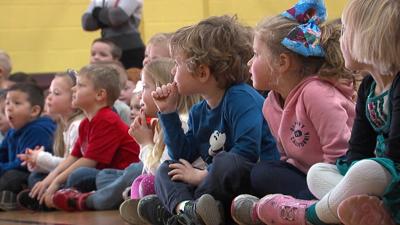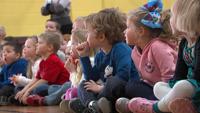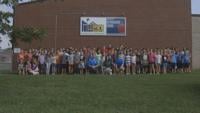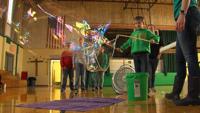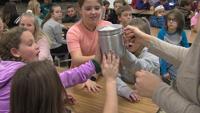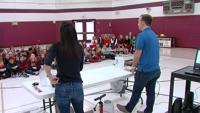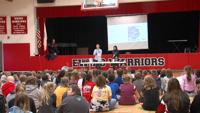STEELEVILLE (WSIL) -- Weather impacts us every day which is why our Storm Track 3 meteorologists are spending their time teaching students about what they love most.
"Our family is a farm family so we always have to watch the news to make sure we have the great weather so that we know what we can do and when we can do it," says St. Mark's Lutheran School first grader Kristen Vallett.
Vallett keeps an extra close eye on the weather, but her teacher Judy Sarwark says she's not the only one.
"They know what the temperature is when they come in school. They know what it'll be like at lunch time, recess and then by the time they're going home, they know if there's prediction or forecast of snow," explains Sarwark.
First grade students at St. Mark's learn about weather and science through their reading.
"The way science and the way the brain works, it's all about the way you're seeing things, the way you're saying things, the way you're touching and like learning all of our sight words," says Sarwark.
Sight words are words that can't be sounded out which means the students have to memorize them.
"We have them because some of them, they can be rule breakers of some of the rules, and you can't sound some of them out, so you just have to kind of have to just remember how to spell those words."
In order to memorize those words, teachers use multiple techniques to ensure that it sticks.
Sarwark says, "It is all about tapping, tracing, using sand, then writing, using different colors so that's how we teach, learning in first grade like the first hundred sight words."
"Our word today was two. It's up there, and we would just stand up and we would do t-w-o, and then we would keep doing that three times," adds Vallett.
"Everything is about threes, also the number three, the way you do it, the way you trace it, they way you write it, the colors, so factoring in all those different ways of learning one red word, a sight word, a day," says Sarwark.
Pre-K teacher Delana Luebkemann says that incorporating different types of learning is vital to the students' success. "It's just kind of finding different words and ways to explain and make sure they're understanding the concepts that we need them so much to have in order to be productive in kindergarten."
The WSIL Weather Academy will continue to travel to schools to not only teach students about the weather, but learn more about what they're studying in class. Next week, the Weather Academy will take us to Ewing.

